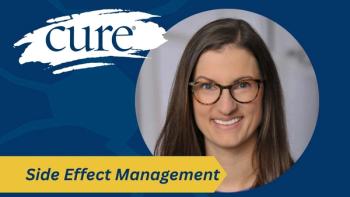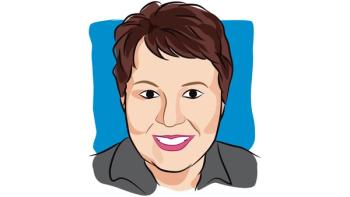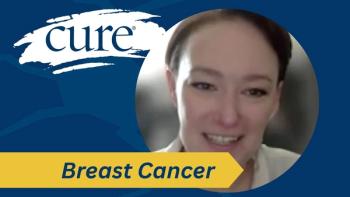
Living with Lung Cancer
Transcript:Edward S. Kim, MD: There are many resources out there, and I encourage the people I see to find those resources. If you have an Internet connection, you have resources. If you have friends, they have resources. There’s a great book out there that is sort of the “50 Questions to Ask My Oncologist,” so there’s a lot of things you can think of. I would encourage you to write things down, almost like you have a diary. Write down these questions. Some of them will be answered in the context of discussion, but other times there will be lingering questions. Sometimes the questions, as we all know, are relevant, and some of them are less relevant. I will tell patients straight out when they ask me a question, “You know, I can tell you an answer, but it’s pure speculation. I don’t know about this or this, but we’re going to do this or this.”
Usually, you’ll be obsessive compulsive. If I say, “Hey, monitor if you’re having any side effects,” some patients are filling out everything that occurs and that’s fine. It also reminds us that you’re going to have day-to-day issues, even if you didn’t have cancer. We’re all people. We all live in environments. You can have back pain and other things. I think what happens is that when we get this diagnosis with cancer, you feel almost dehumanized from it. You think, “Oh my gosh, everything is about the chemotherapy. Everything is about the cancer.” You’re still a person. You still have a life. You shouldn’t interact with those things. Keep track of stuff, and ask your providers to put stuff on pieces of paper. Ask them about diet. That’s another thing that I’ll get a lot of questions about. Ask about medications you could take. They need to know what vitamins you’re taking, or other supplements, because sometimes those can interact with the drugs they’re administering.
They need to know if you have certain physical activities that you’re doing. One of my patients likes to ride horses. I started her on cytotoxic chemotherapy. I said, “I don’t think you should ride your horse right now, because if you fall and break a bone, that’s going to really sort of put us behind the 8-ball as far as treatment.” So, I’m not encouraging her not to spend time with her horse. I would just prefer that she be very cautious. Rock climbing is another thing that I don’t like people doing when they’re on chemotherapy. I had a patient who took a chainsaw out and was cutting trees down. Again, there are certain activities that we can sort of change and maybe modify. Swimming—great. Taking walks, walking your dog, and a lot of things like that can be done.
So, it is important to have communication with your treatment team. It doesn’t have to be your oncologist. It can be the nurse or anyone else. The pharmacist. But let them know these types of things. And it’s fair to ask your oncologist, “How will I feel? What will be the outcome?” And they’ll say that they’re not God and that they won’t be able to predict how things are going to go, but that they are going to hope for the best and work together with you.
Transcript Edited for Clarity



